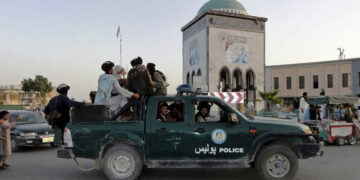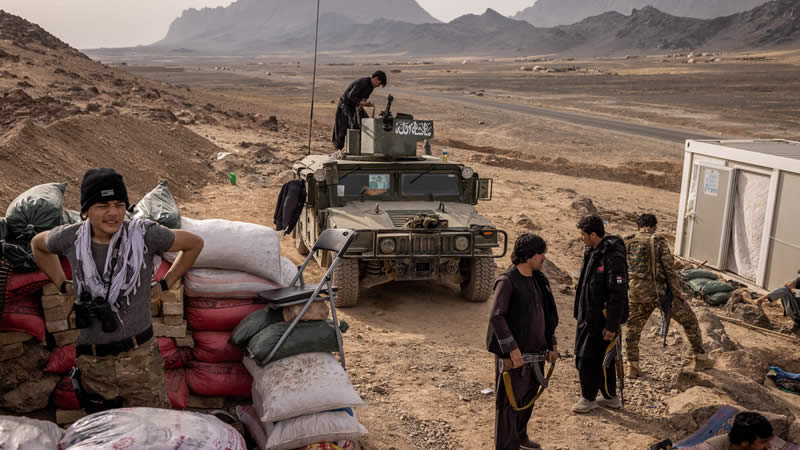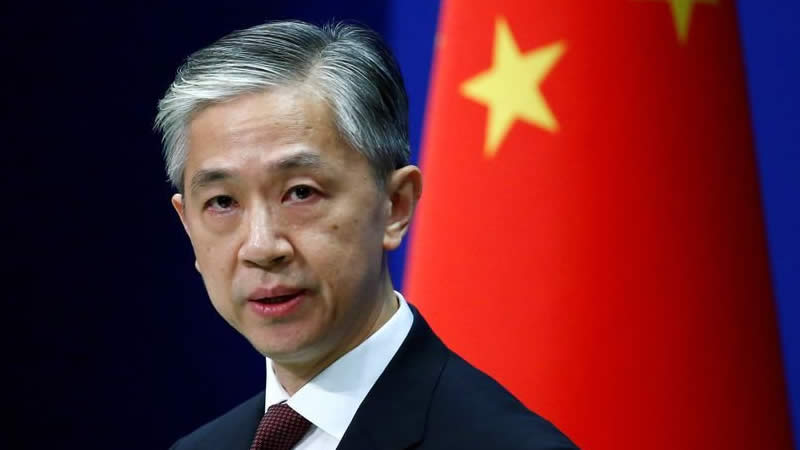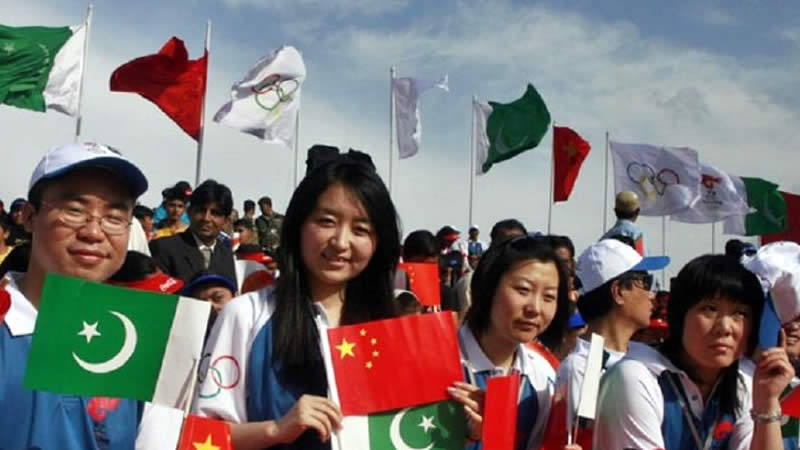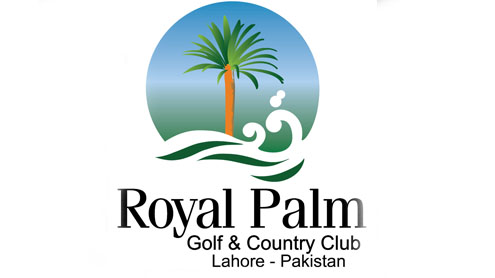 BEIJING, (APP): Chongqing is a model city for other regions and countries in Asia as it assimilates farmers, takes care of the children left behind by parents in pursuit of their jobs, provides low cost housing to low and middle class citizens, promotes happiness as a human development indicator, makes the city safe and secure, and gears up socialism for meeting the needs of common people.“We in Pakistan will keenly study Chongqing model and try to learn from its holistic approach and best practices”’ said Ambassador of Pakistan to China Masood Khan while addressing a seminar on “Chongqing Experience and New Asian Model” held in Chongqing on Sunday.
BEIJING, (APP): Chongqing is a model city for other regions and countries in Asia as it assimilates farmers, takes care of the children left behind by parents in pursuit of their jobs, provides low cost housing to low and middle class citizens, promotes happiness as a human development indicator, makes the city safe and secure, and gears up socialism for meeting the needs of common people.“We in Pakistan will keenly study Chongqing model and try to learn from its holistic approach and best practices”’ said Ambassador of Pakistan to China Masood Khan while addressing a seminar on “Chongqing Experience and New Asian Model” held in Chongqing on Sunday.
The seminar was largely attended by Professor Zhang Guolin, Secretary of the CPC Committee of Southwest University of Political Science and LawMr. Xu Ming, Secretary General of the Chongqing CPC Committee Professor Liu Jin, Vice President of SWUPL, Ambassador Tanka Prasad Karki, Professor Li Xiguang, President of Tsinghua University International Centre for Communication.
The Ambassador pointed out that in addition to the inherent merits of the Chongqing model, what is most relevant for Pakistan is that this metropolis, because of its strategic geographic location and its industrial and financial prowess, is leading China™s efforts to develop the west. The Western cluster of cites“ Chongqing , Chengdu , and Xi™an“ leads the path of development to Xinjiang and thus expand the space for enhanced connectivity with Gilgit-Baltistan.
He said that it is Pakistan’s resolve that “we will strengthen Pakistan-China friendship by building road, air, and rail links. We will work on energy pipelines across our common border and establish transborder and transregional economic zones. In this effort, the Chongqing Practices would inspire and guide our efforts”.
President Hu Jintao has said that the next decade would be devoted for further developing China’s western regions. Premier Wen Jiabao has announced that more than US $ 100 billion will be invested in China™s west for infrastructure development, he said adding this augurs well for new projects for energy, infrastructure, and manufacturing, as well as for social development of China and its extended cross-regional neighbourhood. “Pakistan hopes to be a direct and indirect beneficiary of China™s western development plans”, he observed.
About Pakistan, China bilateral trade, Ambassador Khan said it is right now is about US $ 7 billion, but with the signing of the Free Trade Agreements on goods, services and investment, our bilateral trade is poised to grow further. This trend was evident when Pakistan’s exports to China increased by 25 per cent in 2009; and the growth in two-way trade in the first two quarters of 2010 has been steady. At the moment, our trade with Chongqing and Sichuan is around $ 210 million. Add another US $ 100 million through Pak-Xinjiang border trade.
It is good time for us to connect more closely with Chongqing,Ambassador Khan said adding that Chongqing-Pakistan trade in 2009 was around US $ 70 million. During the first two quarters of 2010, our trade with Chongqing exceeded US $ 50 million setting a good trend for the year. “Instead of saying that this is too little, too small, I would say that we already have a foundation on which we can build our economic and trade relations”, Ambassador Khan said.
He said Pakistan is buying from Chongqing machinery products, auto parts mainly of motorcycles, compressors, CNG equipment, tea and chemical products; and selling leather, hides, spare parts of motor cycles and tractors.
As you all know, right now in Pakistan we are dealing with the consequences of the worst floods in our history, Ambassador Khan adding that more than 20 million people have been affected by these floods. Some 8 million are homeless. Houses, schools, crops, communications networks in 20 % of our territory have been destroyed.
“We are standing back on our feet with determination, resilience, and resourcefulness”, Khan said In this regard, we are grateful to the Government and people of China which has given generous and timely relief assistance to Pakistan . Right now, the second Chinese medical team, which is in Pakistan, is saving lives, healing wounds, treating people, and rekindling new hopes.
The first team, which has returned to China , treated more than 11,000 patients in 18 days. œI will call this the China spirit or, in the light of our discussions today, the Chongqing spirit, he observed.
Chinese leadership, Khan said has taken momentous decisions to develop the rural areas and the Western region in order to reduce the economic disparities between the rural and urban areas and between eastern and western regions.
With a population of 32 million and an area of 80, 000 square k.m, Chongqing is by far the largest metropolis“ or shall we say megapolis – in the world.
A media network has called it fastest growing urban centre on the planet. The number of its citizens is larger that 22 of the 27 European Union states and 153 of the UN members. Chongqing snuggles and grows near the confluence of Jialing Jiang and Yangtze Rivers . It is a city whose GDP is nearly US $ 90 billion and its growth rate in the past year was more than 14 percent.
Terming Chongqing as a bridge between China’s past and present, a connection between ancient and modern China, a link between China’s eastern and western regions it is also a conduit between China’s contemporary realities and its future ascent.
China is the world’s second largest economy after the United States with a GDP of nearly US $ 5 trillion. Besides, China has been the world’s fastest growing economy, with an average growth rate of 10% for the past three decades.
“Goldman Sachs has predicted that China will become number one economy in 2027”, Khan noted.
But what is a China model for a lay man? Ambassador Khan said that he would say that its basic fundamental is to put people at the centre of economic development at home and abroad.
Its second feature is to empower state owned and non-state enterprises simultaneously. But this goal has been pursued in a sophisticated manner. Chinese state enterprises are not white elephants that public entities tend to be, but competitive corporations which have the support of the state to swim in the open market using their own muscles.
At the same time, he said that the enormous energy of the private sector has been unleashed which has shown unprecedented vigour. – App



